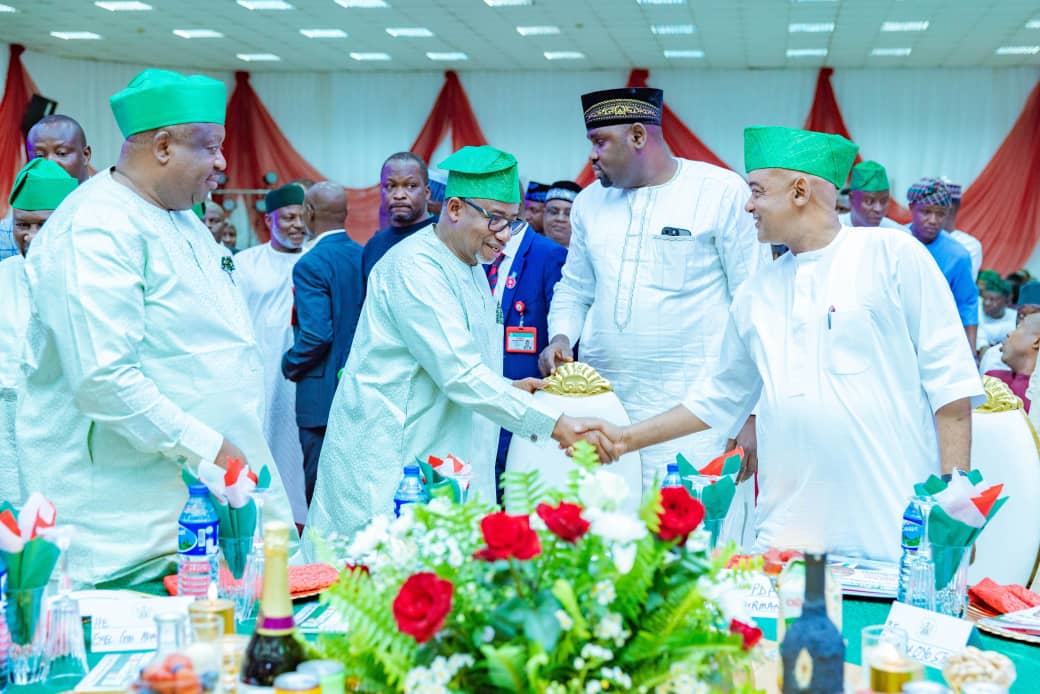In celebration of the 2024 World Diabetes Day, with the theme “diabetes and well-being”, the Diabetes Association of Nigeria (DAN) has urged the federal government to reintroduce the suspended taxation on sweetened beverages and channel the funds to catering for diabetes patients.
Speaking Saturday in Abuja, during a free pre-diabetes screening and sensitisation event organized by the association, in collaboration with Gatefield Foundation, for FCT residents at Wuse Market, a consultant physician, diabetologist and the 1st Vice President of DAN, Dr Mansur Ramadan, said about 14 million Nigerians are diabetic and should be catered for by the federal government, especially as a result of the high cost of medications.
He said: “There is this sugary and sweetened beverages taxation that was passed into law by the past administration, but the deductions were stopped in February this year. Therefore, we want the federal government to resume the deductions. Apart from the resumption of the taxation, we want the government to use this tax for the benefit of the patients. There are many things government can do with the money because we need a lot of resources in this country. It will bring a lot of succour to the patients if government resumes the deductions.
“The World Diabetes Day is being celebrated annually to remember and to advocate for people living with diabetes. We are celebrating with them and we have a whole range of activities that we have been doing. Even though the actual date is on the 14th of November, but from the 14th of November to the end of the month, we have activities that we lined up for this people with diabetes.
“Today, we are conducting pre-diabetes screening for people to know their status because we are aware that half of the people who are known to have this disease are not diagnosed. They are undiagnosed and we want to get people who have diabetes or pre-diabetes to get to know that they have this condition. We also want to speak out on the issue of the high cost of medications.
“We are aware that the patients are going through a lot of difficulty because these medications are very expensive and sometimes they are actually not available and where they are available, they find it difficult to get them.
“In Nigeria, currently, we believe that we have about six percent of the population affected with diabetes. If you project that to our total population of around 230 million to 240 million people, we’re talking about 12 to 14 million people affected with diabetes.
“It’s actually very difficult to tell the exact figure of death related to diabetes, but we know diabetes is the number one cause of kidney failure. But patients with kidney failure when they die, they are not recorded as being dead from diabetes. They are recorded as having died from kidney disease. We also know that diabetes is the one of the major causes of heart attack and most people when they die from heart attack, they are recorded as cardiovascular or heart related deaths. They are not recorded as diabetes dead we also know that people who have stroke many of them have diabetes, so diabetes is one of the major causes.
“However, globally, it is known that every five seconds, one person dies from diabetes and diabetes related complications. So, the mortality from diabetes is huge but mostly because of the way the statistics are collected, they are under reported but even with this underreporting, we know that it’s responsible for large number of mortality. And don’t forget apart from the deaths we have, what we call morbidity that is complications related to the disease that affects people’s way of life, their means of livelihood. Some of them get amputation and they don’t go back to their work.
“Our target is that we want to screen as many people as will be able to turn up. We have the resources. We have enough human resources, there are doctors, nurses, dieticians, lab scientists. We have a lot of them here with us who are members of the association. And we are also asking people to join us in the Diabetes Association of Nigeria to help advocate for these people so that we can achieve our goals.
“Ignorance and poverty are contributing factors to diabetes. They are some of the problems we are facing because sometimes when these people are diagnosed with diabetes, some of them don’t believe that they have the disease and there is this denial. And sometimes it takes some time before people can accept their condition. And within that time, they can develop complications. Some of them don’t take medications. Some of them have some beliefs. Some people believe that they shouldn’t take injections. So, I advise everyone to go for screening and get treatment.”
Also speaking, the co-chair National Action on Sugar Reduction Coalition, Comrade Benard Enyia, who is a Type 2 Diabetes patient, said the cost of diabetes medication is very high and for the government to intervene as it is a lifetime sickness.
He said: “I am living with type 2 diabetes. Before I was diagnosed, I discovered that I was passing out a lot of urine and drinking plenty of water. I would eat food, large quantity of food and become hungry almost immediately. And I couldn’t see well. I would have this blurry vision where I can’t read characters in the Bible or the dictionary.
“Sometimes even to read from my phone was a problem. And I was becoming weak with each passing day. And to a large extent, I was losing my sensitivity. Unlike before, any small prickle, I would feel it. But because diabetes was so much in my system, and I didn’t know, I was not having all this sensitivity. Then when I now got to the hospital, they checked my blood, they checked my urine, and discovered that there was so much sugar in it. That was how I was diagnosed with diabetes. So, to my knowledge, I just believe that those inconveniences are the symptoms that present with diabetes.
“Diabetes, in the first instance, has no cure. It’s a chronic disease. And those who have diabetes live with it for life. And we also take drugs on a daily basis. As I’m standing here, I take a drug they call insulin in the morning and in the evening and it’s so expensive. Some time ago, last two years, that injection used to cost like between 3,000 and 4,000 Naira. But now, that drug now costs more than 20 thousand naira. And I take like three bottles in a month. So, if you times that by the number I consume, you discover that I spend well over the 70,000 minimum wage just for the drug. I also have a syringe, a special syringe that is used to administer this injection. It is also costly. Then there is the oral medication and diet regime.
“So, a typical diabetes patient in Nigeria spends nothing less than 150 thousand naira a month. And this is a toll on our family. It affects my wife, my children. Sometimes I sacrifice my children’s school fees to take care of myself because I need to be alive to take care of them. So, it’s a Herculean task living with diabetes in Nigeria.”
He added: “In 2021, the then president, Mohammed Buhari, approved 10 naira per litre to be deducted from the manufacturers of sweetened beverages. And that was when he was presenting his Appropriation Bill of 2021.
“But in 2022, precisely in the month of June, the Nigerian Customs Services were saddled with the responsibility to start the deduction of this money. And the deduction continued until when President Bola Ahmed Tinubu came on board. Believe you me, we were excited that they are deducting this money for government and also, plough it back into derivation funds. The government of President Bola Ahmed Tinibu now suspended that deduction in the month of February.
“Now, we were so curious and we went to the Minister of Finance to ask why it was stopped. The Minister of Finance apologised to us, but alluded to the fact that they stopped that deduction momentarily for six months to stabilise the economy. And now, we discovered that that money that was deducted is in the government coffers.
“They have not started using it for diabetes care. Yet, the WHO standard is that for other countries that are using this same methodology to intervene on these non-communicable diseases, that it is a successful intervention. But they are recommending that the 10 naira per liter is too small. So, we are advocating for 130 naira per liter, so that government will have sufficient money. Because government will always say, we don’t have money, we don’t have money. But this time, as you do the deduction, you have enough money to do intervention.
“We, who are living with diabetes, embarked on a patient advocacy campaign, reminding government that they should go back and continue with the deduction. And they should make a legislation authorizing the relevant agencies to plow this money into diabetes care, so that the high cost of diabetes treatment will be reduced.
“And then, they can also use it to subsidize the cost of diabetes treatment. Because for now, a lot of us are no longer able to afford hospital bills. Some have stopped going to the hospital and resorted to herbal medication, which we feel are cheaper.
“But we discovered that the danger in it is that we even experience severe complications, because you go to a local drug vendor, whose products sometimes don’t even have a major. As we take them, we go into other side effects. A lot of people have died silently without people knowing, because we feel we’re going for a cheaper alternative, but rather we’re going for a more dangerous aspect of treatment.”

 2 hours ago
14
2 hours ago
14













